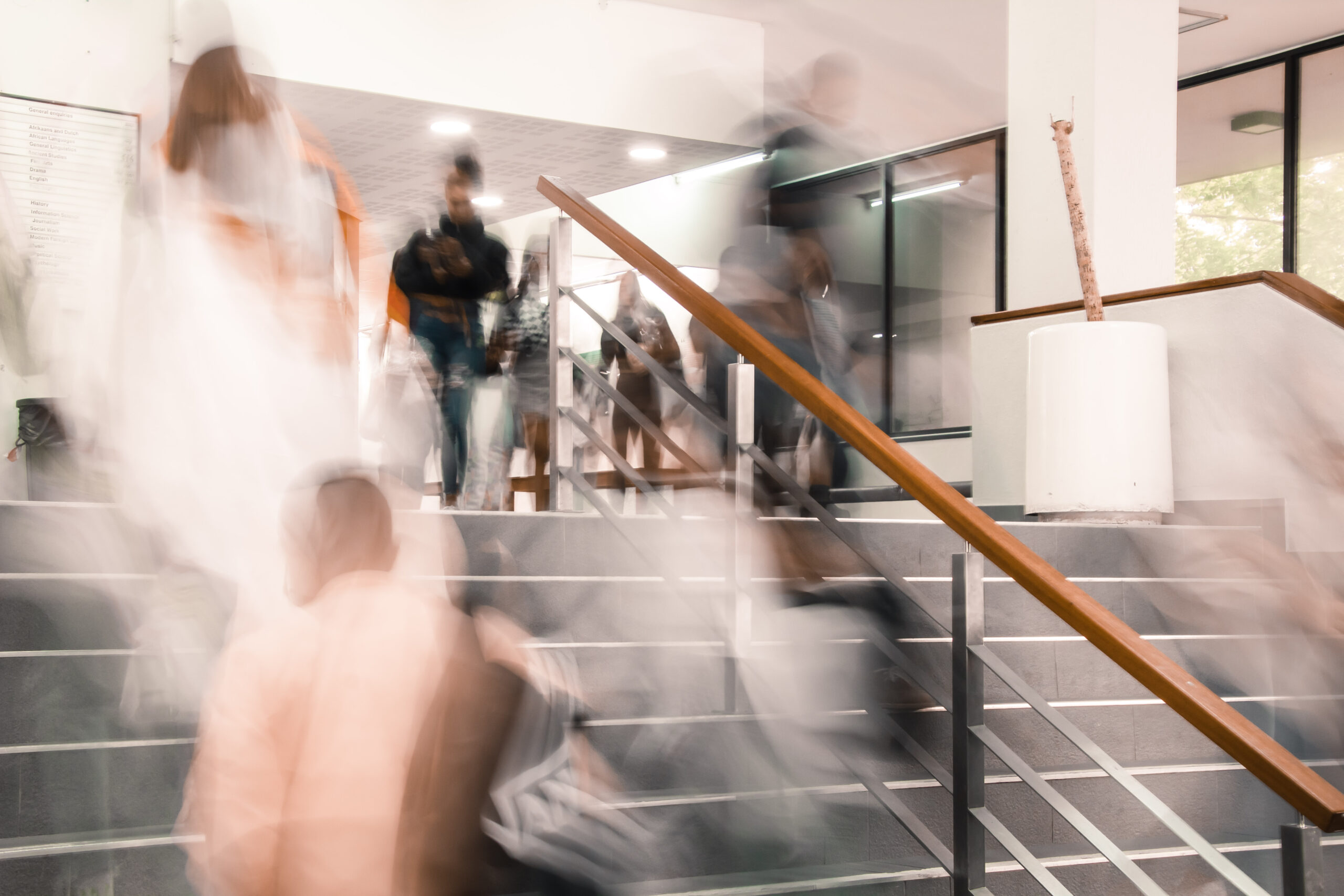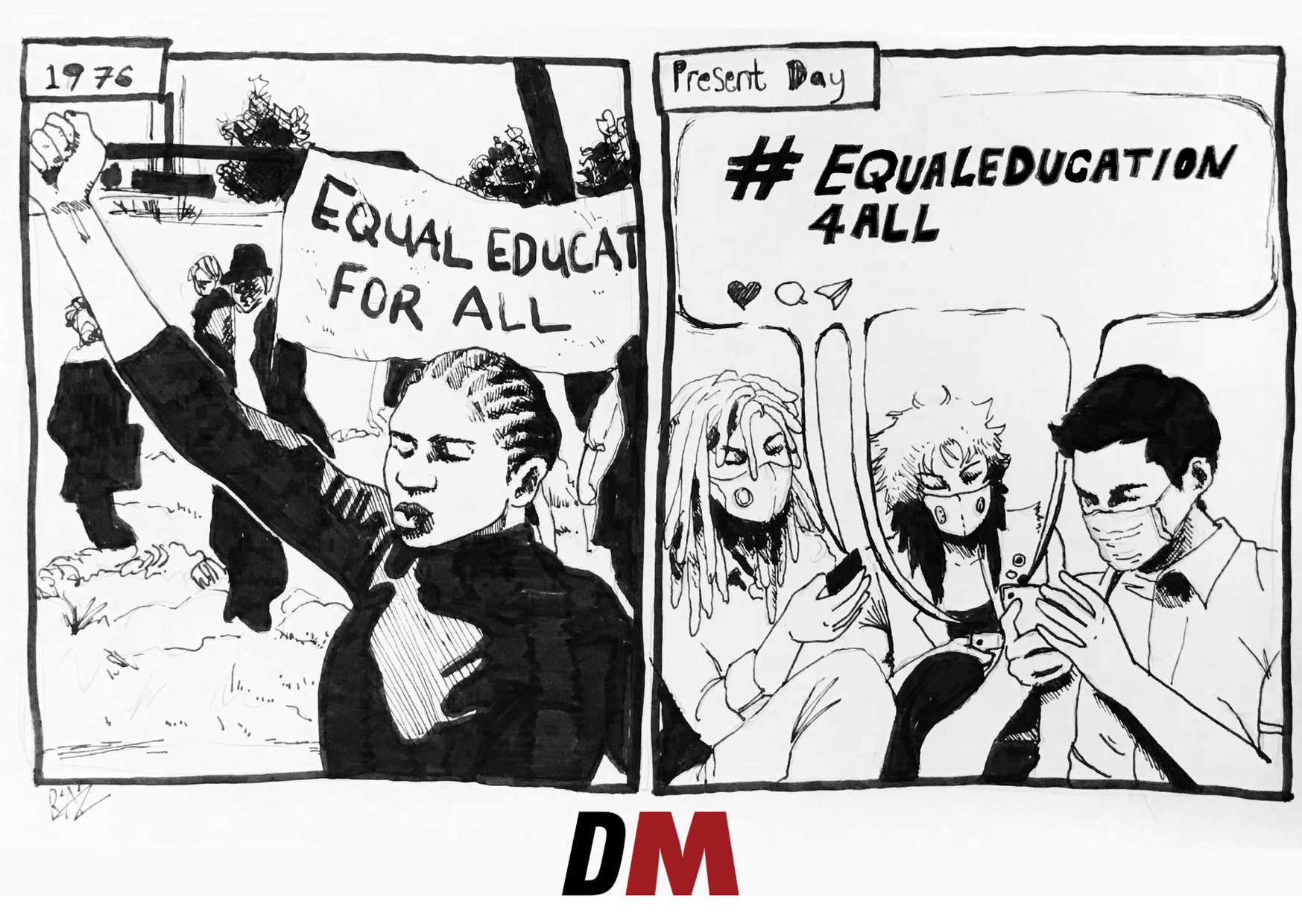BY CLAIRE RANKIN
Under Stellenbosch University’s (SU) proposed vaccine mandate, students and staff will be required to be fully vaccinated to continue their studies and employment at the university, unless they have been granted an exemption on valid medical or religious grounds. The main reason cited by SU for the mandate is to allow for a return to face-to-face learning.
One might easily conclude that the policy is unconstitutional because it appears to limit numerous rights. It seems to force individuals to get vaccinated, limiting their freedom of choice and control over their bodies. Where the mandate blocks students from registering, it would also seemingly block students from accessing higher education; but just because it may be easy to reach that conclusion, does not mean it is correct.
Firstly, the mandate does not force individuals to get vaccinated. It merely requires them to make a choice between getting vaccinated and being able to access the university, or remaining unvaccinated and not being afforded similar access. An individual’s ability to choose not to get vaccinated, and thus their bodily integrity, is still preserved. The fact that their choice may now limit what they are able to do is not in and of itself unconstitutional. The Constitutional Court has previously held that where an individual is forced to make a choice that may limit what it is they are able to do, the limiting effect of that choice does not limit their rights.
But assuming that, in being forced to choose between vaccination or university attendance, one’s right to bodily integrity is in fact limited, a policy’s limitation of a right does not automatically render it unconstitutional. The Constitution and the courts have made it very clear that no right is absolute, and all rights may be subject to justifiable limitations. Section 36 of the Constitution provides several factors to be applied when determining whether a limitation of a right is justified.
Firstly, the purpose of the limitation must be considered. Generally, a vaccine mandate can serve to protect individuals from several risks associated with contracting COVID-19. Viewed from that perspective, the mandate is similar to other laws that prevent individuals from making certain choices that expose them to greater risks, such as not wearing a seatbelt, drinking and driving, or using one’s cell phone whilst driving. It also serves a public purpose: decreasing the risk of severe COVID-19 infections reduces the strain on the healthcare system. Considering the limited resources available to the healthcare system (something the courts have taken judicial notice of on multiple occasions), reducing the strain placed on it by COVID-19 serves a massive public benefit. The reduction of severe COVID-19 cases and a reduction in the transmissibility of the virus also allows for a move away from the use of national lockdowns to try and curb the effects of the virus. Lockdowns have massive consequences for the ability of the South African population to earn a livelihood. Specifically, the purpose of SU’s mandate allows for students to access the education they pay for more easily and in a manner that makes it less likely that they will fall through the cracks of the system.
The link between the purpose and the limitation, as well as whether there are less restrictive means through which the purpose can be achieved, are also important considerations. Given the overwhelming scientific evidence about the efficiency and safety of the vaccine, increasing the number of vaccinated individuals has the strongest chance of achieving the purposes already discussed. It is difficult to conceive of a less restrictive way through which the same objectives can be achieved and the same negative consequences already discussed can be avoided.
The nature of the right being limited also needs to be considered alongside the nature and extent of the limitation. Here, it is important to reiterate that a vaccine mandate does not force individuals to get vaccinated. The choice not to get vaccinated does remain. This in turn limits the extent of the limitation on the right to bodily autonomy. But even if that argument seems simplistic, given the strong body of evidence supporting the safety and efficiency of the vaccine and the fact that students can obtain an exemption where they may require it for valid medical or religious reasons, requiring students to get vaccinated does not really have much of a negative effect at the end of the day.
A vaccine mandate is not a novel policy. Proof of vaccination against a variety of other diseases is already required to register children at schools, and proof of medication or the consumption of certain medicine is also commonly required for entrance into numerous countries. One cannot forget that rights do not exist in a vacuum, and the exercise thereof can be constrained in order to protect the public good.




To still be using seatbelt analogies with the information currently available. Shameful.
The experimental gene software is obsolete in the face of Omicron and the vaccinated and boosted are said to be at greater risk with negative efficacy.
Exposing young people to myocarditis, OAS and ADE, and potentially compromising their immune systems for life, to protect a health care system not under pressure is mad.
What a stupid woman!